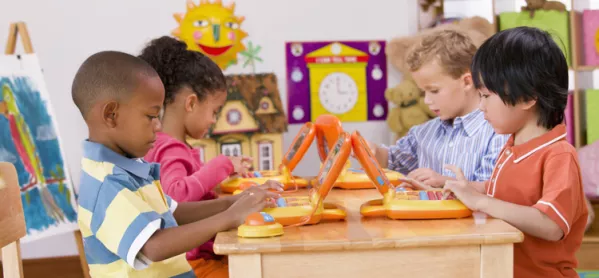The early years training company that provided the most popular Reception baseline assessment last year has pulled out of the competition to set up a new test for four-year-olds.
Around 12,000 schools signed up for the Early Excellence EExBA baseline assessment, one of three government-approved assessments, in 2016.
The Early Excellence baseline was the only assessment purely based on teacher observations - an approach the Department for Education has said it does not want to see in the new baseline assessment.
In a statement released today, Early Excellence said that the government’s proposals for the assessment are “self-contradictory, incoherent, unworkable and ultimately inaccurate, invalid and unusable.”
It said that that the decision to prohibit an observational approach appeared to be “an expression of a purely ideological position” that did not accept the “expertise and experience of the sector”.
‘Meaningless and unusable’
The previous baseline assessment was abandoned in April 2016, when researchers discovered that the three approved assessments were not comparable.
The government has now said that it wants to introduce one national Reception baseline from 2020, which will involve testing children soon after they start in Reception.
The assessment will cover communication, literacy, maths and, possibly, self-regulation. The information will be used to measure children’s progress between starting and leaving primary school in Year 6.
But in a prior information notice about the £9.8 million contract, the DfE made it clear that it did not want the new assessment to be based on teacher observations.
“The pupil’s regular teacher or teaching assistant will carry out and mediate the assessment. We do not intend this to be an observational assessment which is carried out over time, like the Early Years Foundation Stage Profile (EYFSP),” the notice stated.
Today’s Early Excellence statement said that a test-based assessment “will not accurately reflect what the children know and understand, provide data that is meaningless and unusable, and, most absurdly of all, appears unlikely to even be available until seven years later”.
Early Excellence concluded that it could not envisage participating in the tender process.
A DfE spokesperson said: “Our consultation on primary assessment showed support for the introduction of a new reception baseline. We have listened to the feedback from the consultation, which included responses from the profession, to develop the outline for the assessment. We will continue to work with the sector as it is developed and will conduct a large-scale pilot before it is introduced. This will provide opportunities for teachers and assessment experts to feedback before the assessment is introduced in 2020-21.”
Want to keep up with the latest education news and opinion? Follow Tes on Twitter and Instagram, and like Tes on Facebook




